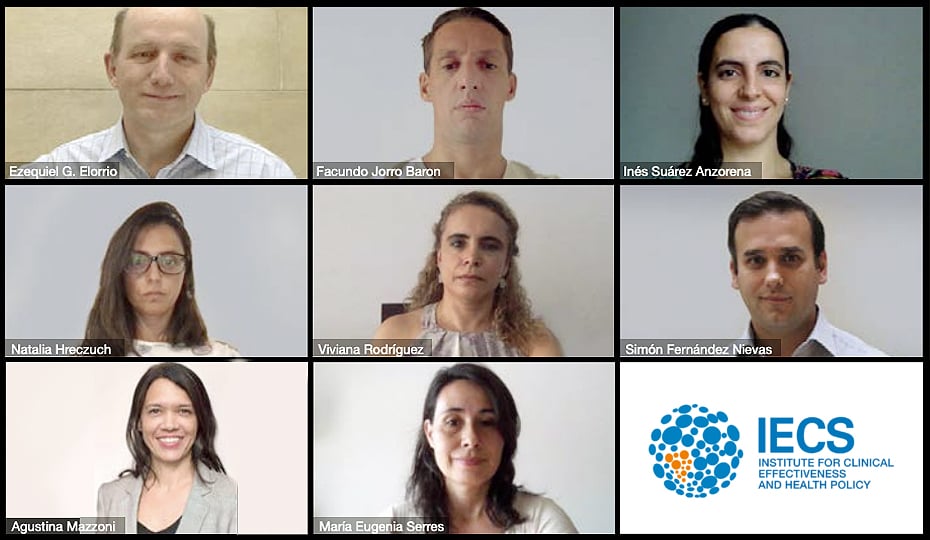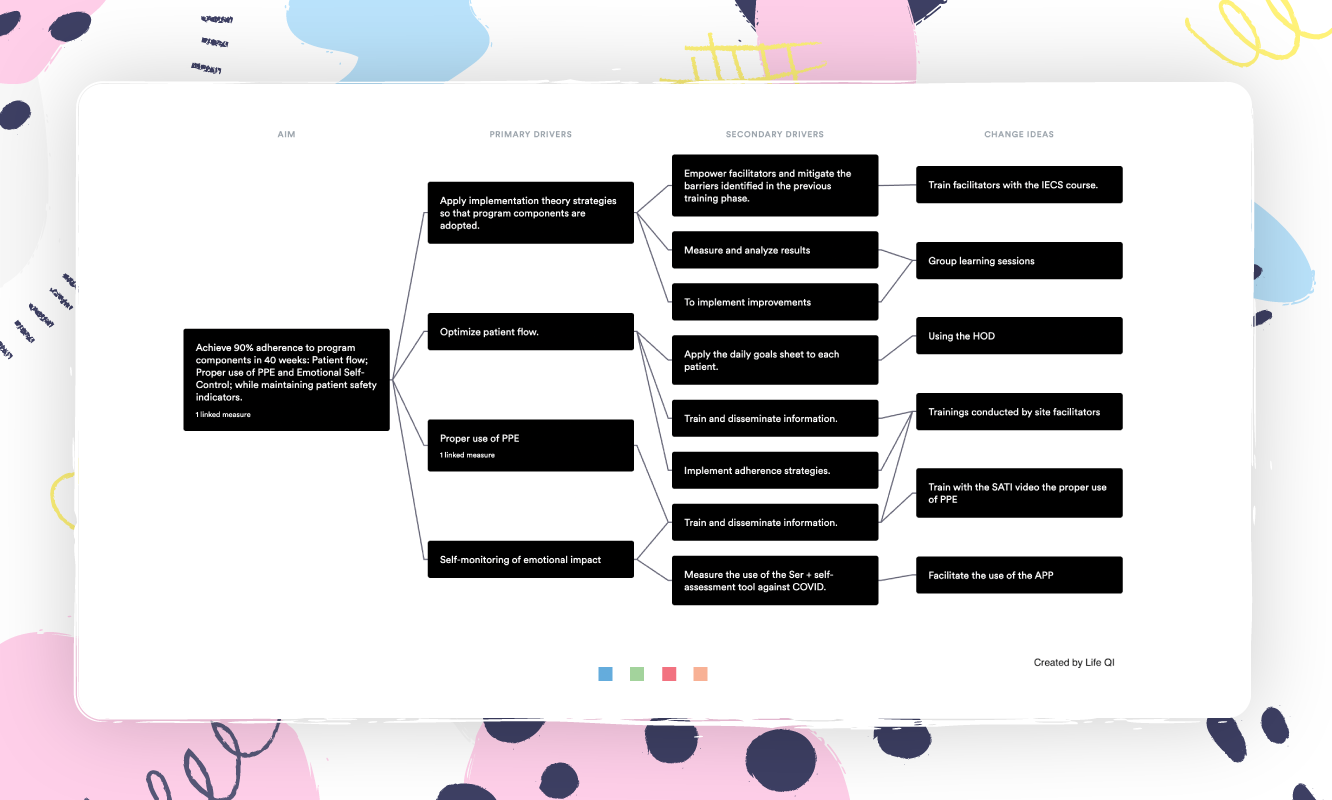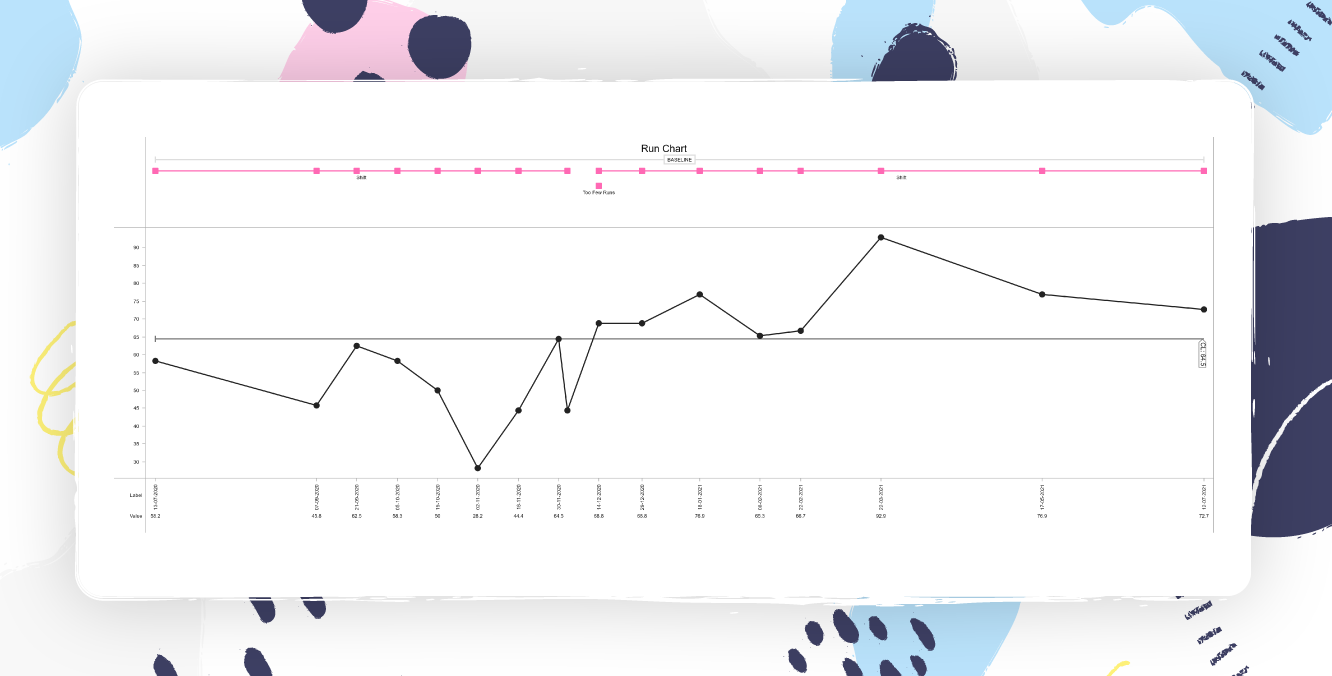Start improving with Life QI today
Full access to all Life QI features and a support team excited to help you. Quality improvement has never been easier.

Organisation already using Life QI?
Sign-up

Published on 14 October 2021 at 16:38

IECS (Institute for Clinical Effectiveness & Health Policy) is an independent, non-profit academic institution dedicated to research, education, and technical cooperation in health. IECS has been a strong promoter of quality improvement and patient safety through a number of initiatives that include QICs, system wide measurement strategies, research and educational programs. The IECS work with 33 countries (mostly in low resource settings) and have worked on more than 920 implementation and research projects.

Their improvement projects involve thousands of people spread over different continents and are often funded by research grants from organisations such as the International Center of United States National Institute of Health (NIH), The World Health Organization (WHO), Inter-American Development Bank (IDB) & the Fogarty International Center.

Biggest challenges the IECS face in healthcare improvement
The most recent challenge for the IECS has been the Covid-19 Global Pandemic and the lack of quality improvement (QI) specialists working at each of their sites. The QI culture in low-and-middle-income countries is very poor with little help from governmental organisations, which has meant that a number of teams across the organisation have required training to use a program that they were not accustomed to.
 “Culture of change and culture of QI & Safety is not widespread and is the biggest thing we have to fight for as it is not the main topic in the region. There are only a few QI departments in the region.”
“Culture of change and culture of QI & Safety is not widespread and is the biggest thing we have to fight for as it is not the main topic in the region. There are only a few QI departments in the region.”
Facundo Jorro Barón – Researcher, IECS Argentina
IECS quality improvement collaborative
Over the past year the IECS have been running the following collaborative:
“Strengthening health systems in the era of COVID -19: collaborative to improve ICUs quality of care in the public health sector of Argentina”
The motivation behind this collaborative was to support public sector ICUs during the Covid-19 pandemic, this included 14 teams from 7 different provinces across Argentina. The recent pandemic caused by SARS-Cov-2 has exposed a complex matrix of concerns in the Argentinian healthcare industry, including:
A strategy needed to be executed to deal with the fall out of the pandemic (particularly in Latin America), the focus areas were:
AIM: The IECS aim was to support public sector ICUs with:
OUTCOME: Positive impacts across the collaborative have seen:
The images below show examples of a Driver Diagram and Run Chart used throughout the collaborative, recorded in Life QI.

Run Chart: Percentage of appropriate use of PPE

QI Collaborative during COVID-19
Running a quality improvement collaborative during the Covid-19 pandemic presented challenges. Many health care workers (HCW) infected with COVID-19 and others with comorbidities were discharged home, unable to work. During the peak of the two COVID-19 waves many of the ICUs were nearing 100% occupancy, some working above their capacity. Due to the strain and increased demand on health care workers several of the observers and data collectors had to quit the program.
To overcome these obstacles presented during Covid-19 the IECS trained different people in the same team alongside the study in quality improvement, data entry and Life QI use several times. Communication was key. Biweekly meetings were held with all sites and then two/three times per month with each individual site. A QI coordinator helped to manage the sites.
A virtual campus with a QI course was available, along with translated papers to help with the use of Life QI and REDCap (the database used).
 “Our approach to quality and safety had been the same during the pandemic as it was before.”
“Our approach to quality and safety had been the same during the pandemic as it was before.”
Facundo Jorro Barón, Researcher, IECS Argentina.
The level of QI was maintained due to the plans the IECS had in place to ensure the collaborative could continue regardless of the obstacles.
Life QI appointed to assist with IECS collaborative
IECS were looking for a tailored solution to improve collaboration across Argentina. Life QI was implemented specifically for the collaborative capabilities. Traditionally data was recorded in an Excel document, but the size of the project required a software that enabled the IECS to run their quality improvement projects effectively from remote locations, with a seamless way of communicating, reporting data centrally and introducing a consistent way of working across all sites. The IECS secured external sponsorship to enable them to purchase the Life QI licences for the program of work.
Benefits of using Life QI
Life QI offered the IECS the flexibility they needed to run a seamless QI collaborative across many sites in Argentina. Whilst it was a difficult process securing funding for the QI collaborative it was clear that Life QI was going to support the sites and open up direct channels of communication, despite their remote location. This allowed staff to share their results, record their data centrally and design PDSA cycles.
 “The best thing about Life QI is the possibilities to design PDSA Cycles and to evaluate the cycle in the same platform.” Facundo Jorro Barón – Researcher, IECS Argentina
“The best thing about Life QI is the possibilities to design PDSA Cycles and to evaluate the cycle in the same platform.” Facundo Jorro Barón – Researcher, IECS Argentina
About IECS:
The IECS seek to help reformulate the national, regional and global research agenda with work that reflects the health priorities and needs of populations in low- and middle-income countries.
Mission & View
Contribute to improving global health, generating, and promoting the application of the best scientific evidence.
A world in which all people achieve the highest possible level of health, where the IECS is an innovative organization and a global player in the generation of knowledge, formulation and implementation of health services, programs, and policies.
Image References:
Main Image: https://www.iecs.org.ar/wp-content/uploads/anuario_IECS_2020_ingles.pdf
Map Image: https://www.iecs.org.ar/en/
SPC Chart / Driver Diagram: https://www.lifeqisystem.com/
Full access to all Life QI features and a support team excited to help you. Quality improvement has never been easier.

Organisation already using Life QI?
Sign-up